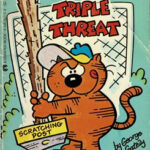The age-old saying, “Curiosity Killed The Cat,” is often used as a cautionary tale, warning against the dangers of inquisitiveness. However, in the realm of medicine, curiosity is not a perilous trait but a vital asset. From my earliest memories, my mother recounts, I possessed an insatiable curiosity, my eyes wide open, observing the world with an intensity that both amazed and amused those around me. This inherent thirst for knowledge and understanding has not only served me well on my path to becoming a physician but has become the very bedrock of my approach to patient care, research, and continuous learning.
One of the earliest manifestations of my curiosity was a deep love for literature, particularly the works of Shakespeare. Immersing myself in plays like King Lear, Hamlet, and Othello was far more than just an academic exercise. Shakespeare’s profound insights into the human psyche provided me with an invaluable education in empathy and understanding. Reading King Lear, for instance, offered a powerful glimpse into the complexities of aging, cognitive decline, and the intricate family dynamics that often accompany such challenges. This literary exploration proved to be remarkably prescient, laying a foundation for my future encounters with patients grappling with dementia and families navigating the often-turbulent waters of healthcare decisions. Shakespeare’s works became a lens through which I could better comprehend the diverse emotional landscapes of my patients, from the ego-driven behaviors in Hamlet to the insecurities in Othello, and even the societal biases reflected in Taming of the Shrew. My ongoing engagement with his complete works is driven by a desire to deepen my understanding of the fundamental threads that connect us all as human beings.
Beyond the humanities, my curiosity propelled me towards the frontiers of scientific discovery. During my pre-medical school research year, this drive led me to investigate novel ophthalmologic drugs. Within a mere six months, this fervent exploration yielded promising candidates that subsequently became university-patented technology. This early success solidified my belief in the power of curiosity to fuel innovation. Today, this same inquisitiveness motivates me to remain at the forefront of medical advancements, constantly seeking out and evaluating cutting-edge therapies and interventions that can enhance patient outcomes. In the rapidly evolving landscape of modern medicine, this commitment to staying informed and exploring new possibilities is not just a personal preference, but a professional imperative. My dedication to medical research, now focused on cardiology, stems directly from this innate desire to push boundaries and contribute meaningfully to the field.
Over years of nurturing my inherent curiosity, I’ve come to realize that it is not a trait to be suppressed or contained. I have shed the self-consciousness I once felt about my constant questioning and contemplation. This inherent inquisitiveness has proven to be an invaluable asset in my role as a physician. It empowers me to approach complex cases with a broad and open mind, essential for crafting comprehensive differential diagnoses. This wide-ranging curiosity acts as a safeguard against premature closure, a cognitive pitfall that can lead to diagnostic errors. By resisting the urge to settle on the first plausible explanation, I allow myself to consider a wider spectrum of possibilities, ultimately leading to more accurate and effective patient care.
This journey of embracing curiosity has been transformative, evolving from internal contemplation to tangible action. During my undergraduate years, my curiosity led me to consider entering a NASA astronaut-suit design competition. I remember filling a small, velvet-covered notebook, adorned with the word “poetry,” with sketches of a spacesuit concept designed to improve astronauts’ hygiene during space missions. Although I never submitted my design – believing my path lay in medicine, not engineering – I later discovered that current astronaut spacesuits incorporate design elements remarkably similar to my early concepts. I still keep that red notebook, occasionally jotting down ideas that arise amidst the demands of patient care. The key difference now is a newfound confidence to translate these ideas into action and to voice my perspectives. I have come to appreciate the interconnectedness of my thoughts across various domains – whether as a learner, educator, physician, researcher, or writer. Embracing the multifaceted directions my curiosity takes me has become not just accepted, but celebrated as a driving force in my professional and personal life.
Ultimately, the idiom “curiosity killed the cat” holds no weight in the world of medicine. Instead, it is curiosity that breathes life into the practice, driving innovation, fostering deeper understanding, and ultimately leading to better patient care. Embracing a questioning mind is not just beneficial for a physician; it is essential for navigating the complexities of health and disease and for continuously striving to improve the lives of those we serve.

